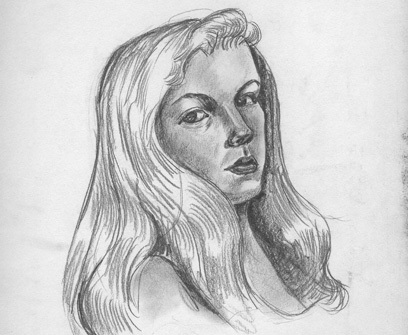A time of day, dawn, made sharp by anticipated interruption; a house
animated by children, their happiness, their demands, their balloons and
playthings; the potential for violence innate in all beauty, as well as
the awful beauty of violence; the feeling of elation at filling a house
with the clacking of a typewriter, and the fear of the silence when the
typing ends: these elements are my personal “Ariel,” and I tire of the
more rhetorical and showy poems—“Daddy,” “The Applicant,” “Lady
Lazarus”—upon which Plath made her notorious name. “Ariel” ends with a
poem, “Words,” about the season that T. S. Eliot called “midwinter
spring” and Wallace Stevens called “the earliest end of winter”: March,
when, in New England (a region all three poets share), the sap runs.
Plath’s keystrokes in the quiet house are like “Axes / After whose
stroke the wood rings.” Before, echoing away from her, they become like
horses’ “indefatigable hoof taps”—“riderless,” as in a funeral
procession. Add to the available accounts of Plath (there are so many)
this, please: nobody brought a house to life the way she did. “Ariel,”
despite the tragedy that attends it, is a book with much joy between its
covers.
-
Dan Chiasson
 |
| Sylvia Plath, self-portrait |

